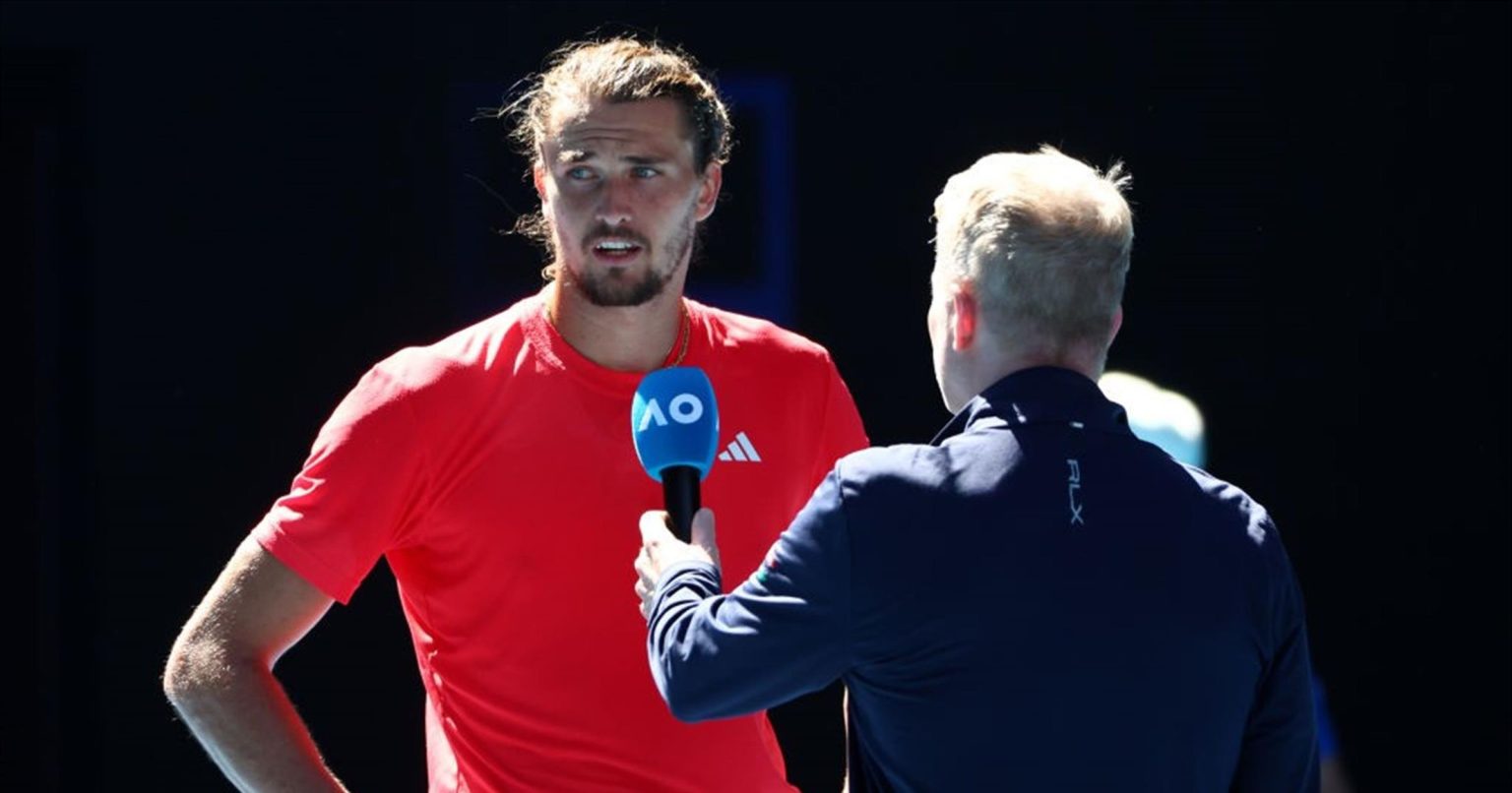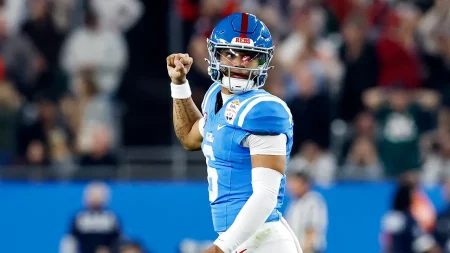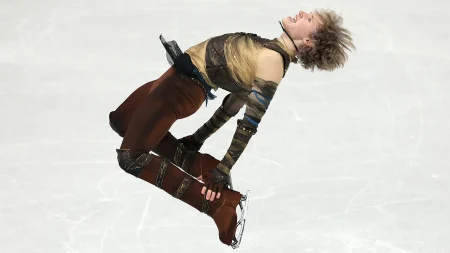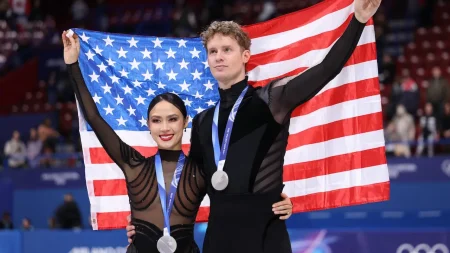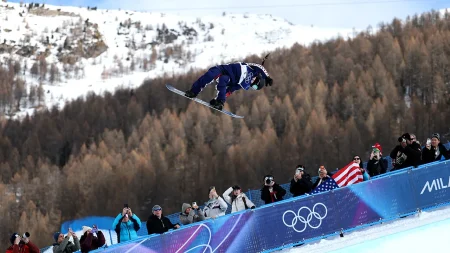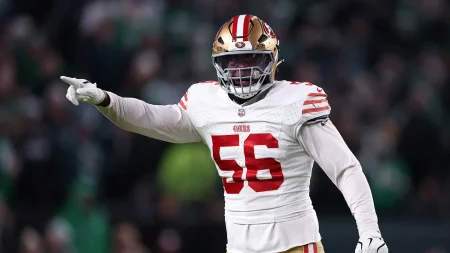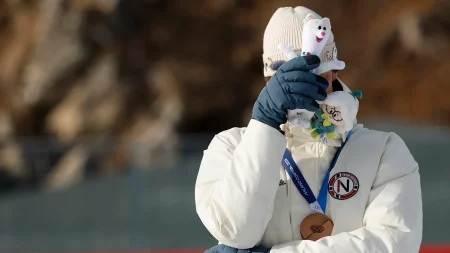The electric atmosphere of the Australian Open semi-final between Alexander Zverev and Novak Djokovic was abruptly silenced as the Serbian star, visibly struggling with a left hamstring injury, retired from the match in the second set. While some spectators expressed their disappointment through boos, Zverev responded with a plea for respect and understanding, urging the crowd to acknowledge Djokovic’s challenging situation. The incident underscored the complex relationship between athletes, injuries, and fan expectations, raising questions about appropriate spectator behaviour in such circumstances. The match, streamed live and on-demand on discovery+, became a stage for a poignant exchange that transcended the usual sporting drama.
Djokovic’s injury, a persistent issue throughout the tournament, progressively worsened during the match. Initially appearing manageable, the strain on his hamstring became increasingly evident as the match progressed. His movements grew more laboured, his serves lacked their characteristic power, and his trademark court coverage was noticeably diminished. Despite his valiant efforts to persevere, the pain eventually became too intense to bear, forcing the nine-time Australian Open champion to concede the match. This unfortunate turn of events deprived fans of what promised to be a thrilling contest between two of the sport’s titans and highlighted the physical demands and inherent risks that professional athletes face.
Zverev, sensing the shift in the crowd’s mood, addressed the spectators directly after Djokovic’s retirement. He acknowledged their disappointment but emphasized the difficult position Djokovic was in, battling both an opponent and a debilitating injury. He articulated the immense pressure athletes face, particularly in high-stakes tournaments like the Australian Open, and reminded everyone that athletes are humans susceptible to injury and pain. His call for empathy and respect resonated with many, turning a moment of potential negativity into a display of sportsmanship and understanding. This act of respect transcended the rivalry and highlighted the shared human experience within the competitive arena.
The incident sparks a broader discussion about spectator behaviour and the expectations placed upon athletes. While fans invest emotionally and financially in sporting events, it’s crucial to remember that athletes are not machines. They are susceptible to injuries, illnesses, and other unforeseen circumstances that can impact their performance. Booing an injured player, while perhaps a visceral expression of disappointment, lacks empathy and fails to recognize the physical and mental toll that injuries take on athletes. It also disregards the athlete’s dedication, training, and sacrifices made to reach the pinnacle of their sport. A more compassionate approach acknowledges the athlete’s struggle and respects their decision to prioritize their health and well-being.
The contrasting reactions to Djokovic’s retirement highlight the diverse perspectives within the sporting community. While some expressed frustration, others offered messages of support and understanding. This dichotomy reflects the ongoing debate about the appropriate response to athletes facing physical limitations. Some argue that spectators are entitled to express their displeasure, especially given the financial investment involved in attending these events. However, a growing movement advocates for greater empathy and respect, emphasizing the human element of professional sports. This perspective calls for a shift in fan culture towards a more supportive and understanding environment, recognizing the vulnerabilities and challenges faced by athletes.
The Zverev-Djokovic semi-final, despite its premature ending, served as a powerful reminder of the complexities inherent in professional sports. It highlighted the delicate balance between athletic ambition and physical limitations, the pressures faced by elite athletes, and the importance of empathy and respect from spectators. The incident, though unfortunate, presented an opportunity to reflect on the human side of sports and the need for greater understanding and support for athletes facing challenging circumstances. The match, streamed on discovery+, captured not only a sporting event but also a human drama, prompting a conversation that extends beyond the tennis court and into the broader realm of sportsmanship and fan culture.




